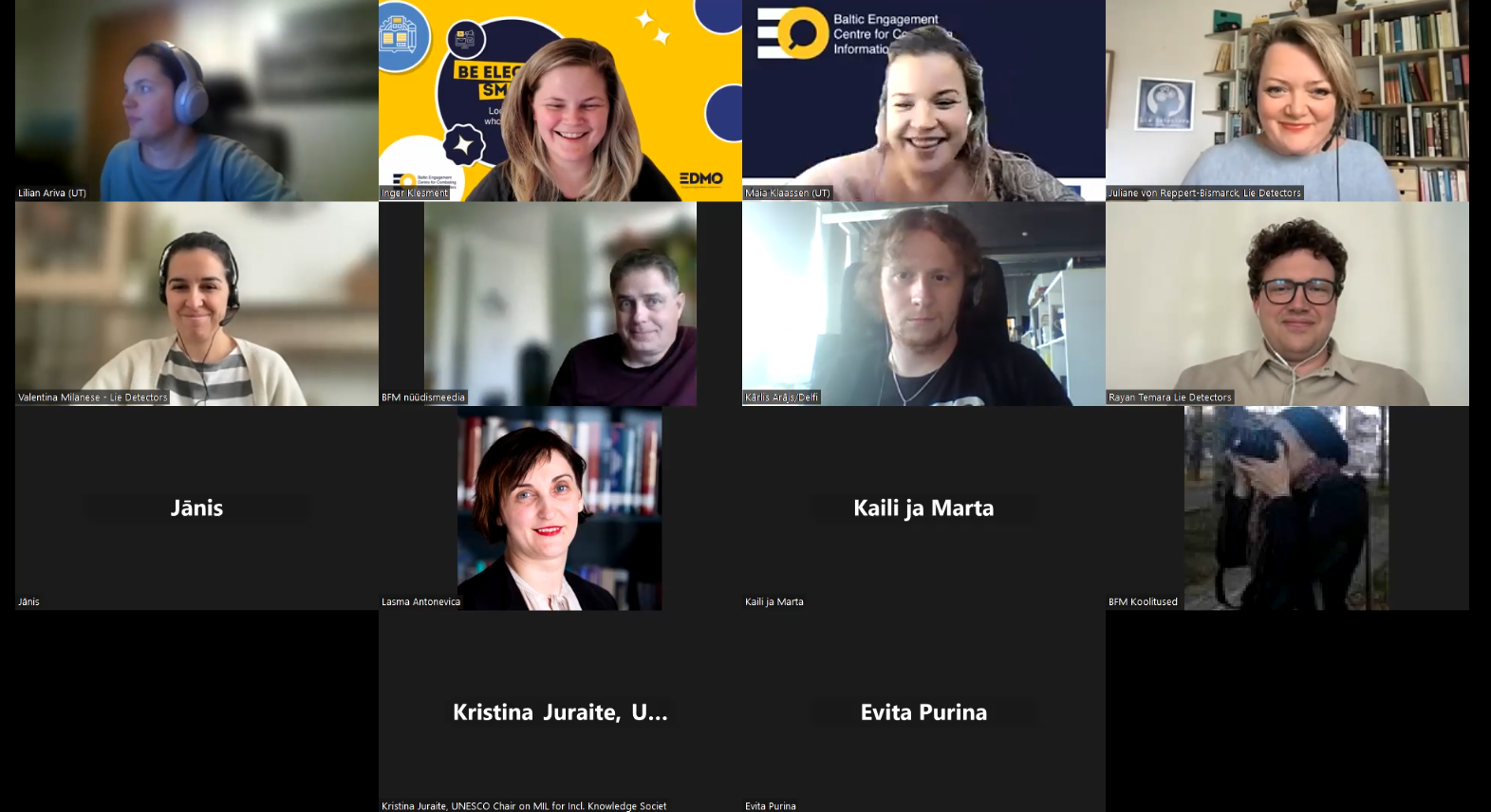 Back
Back

On 31st of May, Juliane von Reppert-Bismarck, founder of “Lie Detectors”, an independent organisation based in Belgium, Poland and Switzerland that promotes media literacy and fights disinformation and polarisation on the internet, shared her good practice in developing media literacy among young people through journalists education in schools, with members of the BECID project and with journalists from the three Baltic States.
“It is crucial to share best practices and develop new strategies to promote media literacy in different regions,” said Juliane von Reppert-Bismarck.
The role of journalists as volunteers is central to “Lie Detectors” initiatives. “Lie Detectors aims to train journalists to become educators in school classrooms and thus strengthen the media literacy of young people,” said Juliane von Reppert-Bismarck.
During the meeting, she revealed that the “Lie Detectors” team has already trained more than 500 journalists who have visited more than 100,000 students in more than 1,000 classrooms.
According to Juliane von Reppert-Bismarck, the training for journalists lasts a day and a half. Participants are provided with materials for a 90-minute class. Trained journalists are also provided with ongoing training and support to maintain high standards and adapt to changing needs. Strict quality control measures, scripts and feedback forms are in place to ensure consistency and efficiency.
Juliane von Reppert-Bismarck pointed out that “Lie Detectors” not only brings together, trains and encourages journalists to share their experiences in schools, but also works with teachers and researchers to continuously improve their methods and materials.
“Lie Detectors” initiatives are also based on EU guidelines – ensuring accessibility and age-appropriateness, regardless of digital access or language differences. One of the most important applicable EU guidelines is the Guidelines for teachers and educators on tackling disinformation and promoting digital literacy through education and training: it provides advice on how to encourage young people to check facts and think critically, and how to spot disinformation or deep fakes. “Lie Detectors” also works closely with the team of “eTwinning”, an initiative set up by the European Commission to promote cooperation between schools in Europe through information and communication technologies.
“Lie Detectors” initiative is a good example of how media and information literacy can be strengthened among young people.
Text author – Austėja Vaičiulevičiūtė